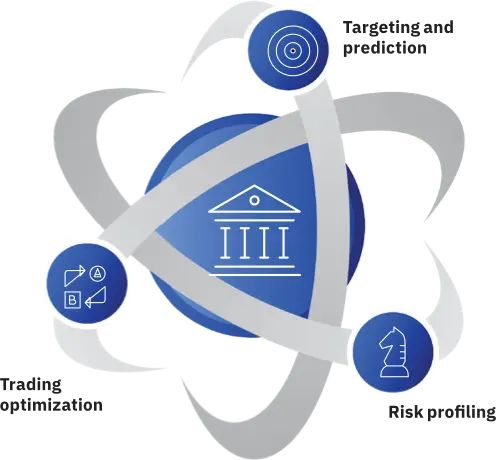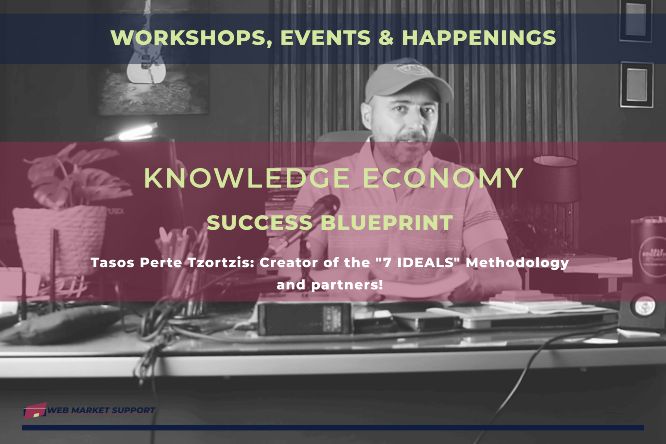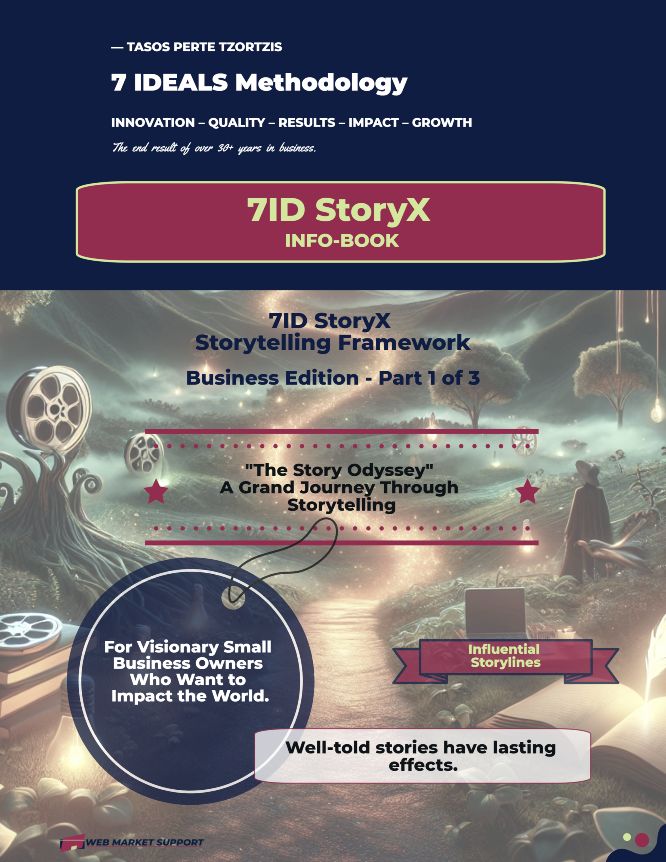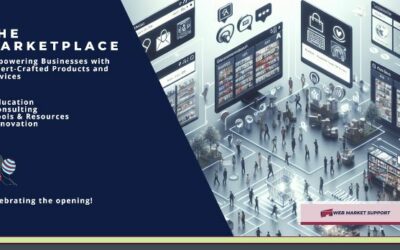In a previous article, I briefly shared the rumors about a new central financial system called QFS.
The quantum financial system is being discussed a lot lately on various networks, websites, blogs, and social channels. It is also believed that it will replace the current system.
Today, I want to discuss quantum computing. I feel that I need to dig deeper into the topic.
Quantum computing is a type of computation that harnesses the collective properties of quantum states, interference, and entanglement, to perform calculations. The devices that perform quantum computations are known as quantum computers.
Though current quantum computers are too small to outperform usual (classical) computers for practical applications, they are believed to be capable of solving certain computational problems, such as integer factorization (which underlies RSA encyption), substantially faster than classical computers.
The study of quantum computing is a subfield of quantum information science.
So, let’s go through some interesting findings regarding quantum computing to see if we can come up with a prediction and if there are implications in marketing and the entrepreneurial world.
Quantum Computing – Revolution or Fad?

Research
Monomita Chakraborty published an article on AnalyticsInsight on April 08, 2021, entitled “Quantum Computing Revolution: is it the next big thing?”.
Highlights from the article:
Quantum simulators are also making progress in areas as diverse as molecular energetics and many-body physics.
Probabilistic computing will enable future systems to understand and function with the uncertainties fundamental in natural data, allowing us to develop computers capable of comprehending, forecasting, and making decisions.
Purdue University researchers have announced that they are working on a probabilistic computer that could cross the void between classical and quantum computing to solve issues more efficiently in areas including drug discovery, security and safety, financial services, data processing, and supply chain management.
Charlie Wood reports on QuantaMagazine that quantum simulators create a totally new phase of matter. At some point, he mentions that the Cambridge group confirmed a nearly 50-year-old theory predicting the exotic state. It also marked a step toward the dream of building a truly useful universal quantum computer.
John Horgan published an article on ScientificAmerican entitled “Will quantum computing ever live up to its hype?”
He mentions that tech giants like IBM, Amazon, Microsoft and Google have invested in quantum computing, as have many smaller companies, 193 by one count. In March, the startup IonQ announced a $2 billion deal that would make it the first publicly traded firm dedicated to quantum computers.
The Wall Street Journal reports that IonQ plans to produce a device roughly the size of an Xbox videogame console by 2023. Quantum computing, the Journal states, could “speed up calculations related to finance, drug and materials discovery, artificial intelligence and others, and crack many of the defenses used to secure the internet.” According to Business Insider, quantum machines could help us “cure cancer, and even take steps to reverse climate change.”
McKinsey & Company published an article on Dec 18, 2020, entitled “How quantum computing could change financial services“.
Fully scaled quantum technology is still a way off, but some banks are already thinking ahead to the potential value.
Google, a leader in the field, said in 2019 that its Sycamore quantum processor took a little more than three minutes to perform a task that would occupy a supercomputer for thousands of years.
The impact of the COVID-19 pandemic has shown that accurate and timely assessment of risk remains a serious challenge for financial institutions.
At the leading edge of the quantum revolution, companies such as IBM, Microsoft, and Google are building quantum computers that aim to do things that classical computers cannot do or could only do in thousands of years.
Sales, marketing, and distribution can benefit from sharper decision-making, for example in relation to resource allocation and tailored services. This holds true for most organizations with large and diverse customer bases but especially for banks, which still spend a large proportion of their operating expenditure on branches and call centers.
Cornell University submitted a survey entitled “Quantum computing for finance“.
Quantum computers are expected to surpass the computational capabilities of classical computers during this decade and have a transformative impact on numerous industry sectors, particularly finance. In fact, finance is estimated to be the first industry sector to benefit from quantum computing, not only in the medium and long term but even in the short term.
Catalina Sparleanu published an article on SuperTrends entitled “Quantum computing in banking and finance – threat or opportunity?”
What do companies such as J.P. Morgan, Wells Fargo, Barclays, Mitsubishi Financial Group, Citigroup, Goldman Sachs, or Caixa Bank have in common (besides being banking and financial giants)? They have all started to invest in and experiment with quantum computing applications.
The FinancierWorldwideMagazine reported that quantum computing in finance is closer than you think.
Some of the world’s most prominent financial institutions such as Barclays, BBVA, JPMorgan, Goldman Sachs and RBS are investing in, and experimenting with, quantum-computing applications and that business impact can be expected in the near term.
There are now frequent media reports about financial services companies entering into partnerships with, and running experiments with, quantum computing providers. Quantum-computing providers and academics are publishing a growing body of papers that showcase their success at constructing optimal financial asset portfolios with historical stock-market data. It would therefore not be surprising if there were already asset managers exploiting insights from quantum algorithms to optimise their portfolios.
Asioso published an article that looks at quantum computing as it relates to digital marketing.
A major advantage of the field of digital marketing is that agencies and companies don’t have to wait until the new models are ready for mass production.
The outstanding computing power of the Quantum Computer in the matter of Data Analysis also expands the Possibilities for simulations.
YourDigitalSource discusses how businesses can take advantage of quantum computing.
Areas that quantum computing excels in: cryptography, data analytics, forecasting, pattern matching, aviation, self-driving cars, medical research.
High-tech industries use quantum computation for many uses. It allows you to optimize search, cybersecurity, bidding strategies for advertisements, online and product marketing, software validation and verification, and machine learning and artificial intelligence, such as neural networks.
HPCwire reported that Fujitsu achieves technical milestones with a 36 qubit quantum simulator.
Steven Van Belleghem published an article on CustomerThink entitled “What quantum computing could mean for customer experience”.
He says that quantum computing will create convenience, take care of lives, and save the world.
RankRed shared an overview of the quantum financial system.
Quantum machines can revolutionize industries that require enormous computing power, including discovering new medicines, empowering deep neural networks, modeling financial markets, and developing a secure way of communication (quantum internet). In this article, we have focused on how quantum computers can improve current financial systems.
Banking sectors, non-banking financial companies, hedge funds, and other financial institutions deal with very sensitive data like customer transactions and contracts. This data needs to be kept private and secure for a longer period of time.
In the standard model of banking, money is recognized in three different forms: commodity money, fiat money, and fiduciary money.
We have also seen the rise of cryptocurrencies in the past decade, but it is not yet widely recognizable. It’s a digital payment system that doesn’t have any central issuing or regulating authority. Instead, it is based on a distributed public ledger known as the blockchain, a record of all transactions held by currency holders.
Quantum money takes things to the next level. It applies quantum cryptographic protocol to generate and validate currencies. Since arbitrary quantum states cannot be perfectly copied, it is impossible to forge quantum money.

IBM – Expected quantum computing use cases in financial services
IBM shared a report entitled “Exploring quantum computing use cases for financial services“.
Applying emerging quantum technology to financial problems—particularly those dealing with uncertainty and constrained optimization—should also prove hugely advantageous for first movers. Imagine being able to make calculations that reveal dynamic arbitrage possibilities that competitors are unable to see. Beyond that, greater compliance, employing behavioral data to enhance customer engagement, and faster reaction to market volatility are some of the specific benefits we expect quantum computing to deliver.
Quantum computing is expected to produce breakthrough products and services likely to successfully solve very specific business problems within three-to-five years.
Quantum computing can also enable financial services organizations to re-engineer operational processes, such as:
- Front-office and back-office decisions on client management for “know your customer,” credit origination, and onboarding,
- Treasury management, trading and asset management,
- Business optimization, including risk management and compliance.
Quantum computing’s specific use cases for financial services can be classified into three main categories: targeting and prediction, trading optimization, and risk profiling.
Travis Humble published a report entitled “Consumer applications of quantum computing”.
We provide a survey of how recent breakthroughs in quantum computing may be applied broadly to sectors driving the development of consumer applications for cloud-based services, artificial intelligence, secure computation, and online entertainment. Following a brief review of the pertinent conceptual principles, we discuss several specific use cases of quantum computing capabilities that motivate new forms of consumer applications.
John Cosley published an article entitled “How quantum computing will transform the way brands engage with consumers”.
With the explosion of data, AI and ML are helping brands extract insights, make better decisions, and create more engaging products and experiences.
One of the most promising opportunities for quantum computing is in building a safer, more reliable online experience for consumers and brands alike.
Uncovering the optimal mix of variables for campaigns based upon projected returns, risk assessments, and other factors is a complex task for advertisers. Using quantum technology to perform these calculations advertisers stand to see vast improvements in campaign quality while saving time developing campaigns. This also applies to ad marketplaces and matching user intent with an ad. Because ad platforms handle billions of impressions and queries, even a 1% improvement delivers substantial benefit.
Quantum computing will also increase ad relevancy. It will be capable of finding and using data patterns to help predict and capitalize on audience intent with accuracy.
PhotonicsMedia reported that…
An experiment launching to the International Space Station later this year could provide the building blocks for a future global quantum network. Called the Space Entanglement and Annealing Quantum Experiment (SEAQUE), it involves a milk-carton-size device that will test two communications technologies in space.
Space-based nodes that receive and transmit quantum data from the ground via free-space optical communications will be a key part of the infrastructure required for quantum computers and sensors to communicate with one another. SEAQUE is designed to prove the viability of technologies that may enable orbiting nodes to securely connect quantum transmitters and receivers over great distances.
To do so, the nodes will need to produce and detect pairs of entangled photons. Eventually, transmitting such photons to quantum computers on the ground could enable quantum cloud computing.
The rest of the article is too techie but this segment is enough to help us understand that quantum technology is already part of our lives.
What does it mean for marketing?
As we can see, quantum computing is a field in which many companies have invested. That is not by accident.
Quantum computing can solve issues much faster and more efficiently and its applications are almost endless.
- Drug discovery
- Security and safety
- Financial services
- Banking
- Data processing
- Supply chain management
- Artificial intelligence
- Sales
- Marketing
- Distribution
- Cryptography
- Data analytics
- Forecasting
- Pattern matching
- Aviation
- Self-driving cars
- Medical research
- and so much more
It can also expand in areas like communications and the internet.
But for us marketing professionals and business owners the most important aspect is that it allows you to optimize search, cybersecurity, bidding strategies for advertisements, online and product marketing, software validation and verification, machine learning, and artificial intelligence.
The whole world is changing fast, not just the entrepreneurial world, and so we need to be prepared.
The concept of quantum computing is not only about empowering companies, banks, and financial institutions but also the end consumer.
Companies that recognize the power of the end consumer and provide superior experiences will survive.
Companies that will stay focused on money and profits will have a hard time competing.
Having a value-driven customer-centric approach is the only way to go.
Are you ready for the future?
Quantum computing has the power to revolutionize every aspect of our lives and save the planet as well. And it will. Why not?
But the question for entrepreneurs is this;
Are you in it for the impact?
Is your brand an advocate of superior user experiences?
Are you taking care of the environment and abiding by ethical business practices?
Then, you are ready for the future.
That’s exactly what we are doing with the “7 Ideals” methodology. We help brands get prepared for the future.
Our value-driven customer-centric strategy will set your brand up for success. It’s the only method that makes thriving brands.
Join us in the upcoming “7 Ideals” beta group.
That’s it, another article has finished, here on Web Market Support. I am waiting for your comments and thoughts. Till next time.

Tasos Perte Tzortzis
Business Organisation & Administration, Marketing Consultant, Creator of the "7 Ideals" Methodology
Although doing traditional business offline since 1992, I fell in love with online marketing in late 2014 and have helped hundreds of brands sell more of their products and services. Founder of WebMarketSupport, Muvimag, Summer Dream.
Reading, arts, science, chess, coffee, tea, swimming, Audi, and family comes first.
















0 Comments